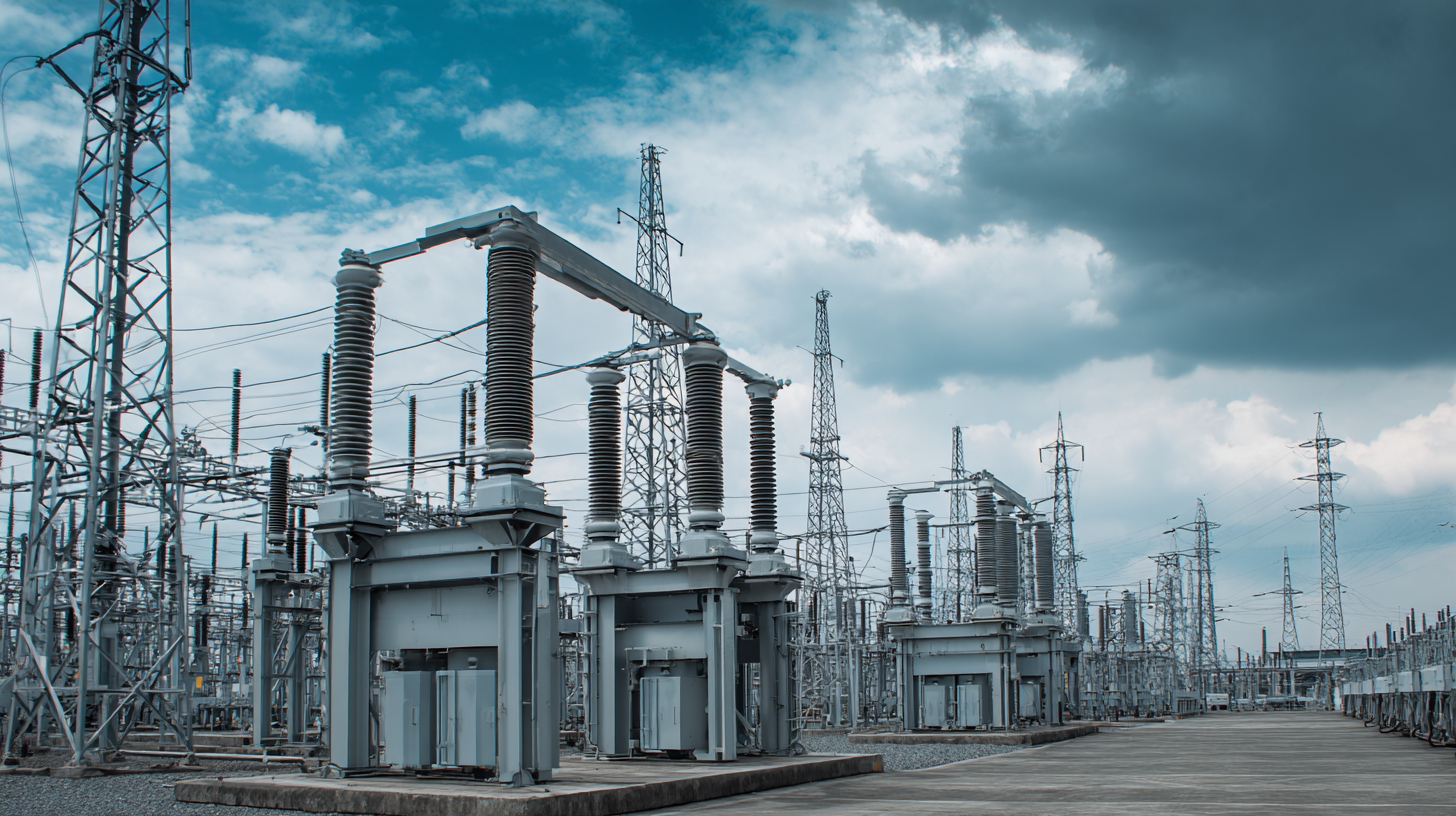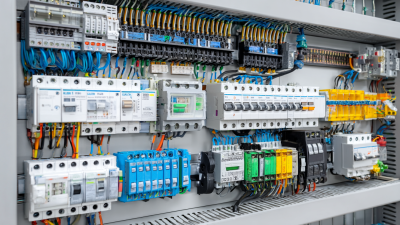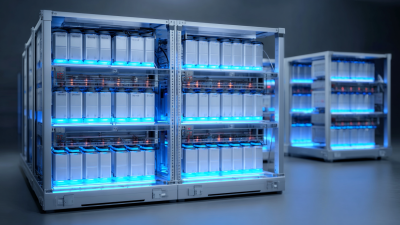In an era where modern infrastructure is increasingly reliant on cutting-edge technologies, the role of electrical systems and services cannot be overstated. According to a recent report by the International Electrotechnical Commission (IEC), the global electrical systems market is projected to grow significantly, driven by the rising demand for reliable and sustainable energy solutions. As noted by industry expert Dr. John Smith, "The evolution of electrical systems and services is pivotal in transforming our built environment into smart, efficient spaces that promote sustainability and resilience."

Moreover, comprehensive electrical systems play a crucial role in sectors ranging from transportation to communication, influencing everything from public safety to economic growth. With a substantial investment in these infrastructures, it is estimated that the electrical systems sector alone will contribute over $1 trillion to the global economy by 2025, as highlighted in the latest report from the National Electrical Contractors Association (NECA). This underscores the importance of prioritizing advancements in electrical systems and services to meet the rising expectations of modern society and ensure a robust framework for future developments.
As we delve into the top 10 electrical systems and services essential for modern infrastructure, it becomes evident that understanding and enhancing these systems is critical. They not only support current needs but also pave the way for innovative solutions that will define the landscapes of tomorrow.
The evolution of smart grid technology has revolutionized energy management, making it more efficient and reliable. According to a report by the International Energy Agency, smart grids could reduce global greenhouse gas emissions by up to 2.5 gigatons annually by enhancing energy efficiency and promoting renewable energy integration. These advancements not only optimize energy distribution but also empower consumers with real-time data, allowing them to make informed choices regarding their energy consumption and costs.
Moreover, the deployment of advanced metering infrastructure (AMI) and demand response (DR) programs has proven pivotal in managing energy loads effectively. A recent study from the U.S. Department of Energy highlighted that implementing demand response strategies could yield up to $30 billion in savings for consumers and utilities by 2025. The incorporation of IoT devices and artificial intelligence into smart grid systems facilitates predictive maintenance and quick incident response, which collectively enhance grid resilience and reliability. As such, the ongoing advancement of smart grid technology is essential not just for energy management but also for fostering a sustainable and secure energy future.
| Rank | Electrical System/Service | Description | Advancements |
|---|---|---|---|
| 1 | Smart Meters | Devices that provide real-time energy usage data. | Enhanced data analytics for consumer behavior understanding. |
| 2 | Automated Distribution Management Systems (ADMS) | Integrated platforms for managing electrical distribution networks. | Improved fault detection and outage management. |
| 3 | Energy Storage Solutions | Technologies to store excess energy for later use. | Advanced battery technologies for better efficiency. |
| 4 | Renewable Energy Integration | Systems to incorporate renewable sources in energy grids. | Smart algorithms for optimal resource management. |
| 5 | Demand Response Systems | Programs to adjust consumer demand for energy efficiency. | Real-time monitoring for dynamic adjustments. |
| 6 | Microgrid Technologies | Localized grids that can operate independently. | Enhanced resilience and efficiency in power delivery. |
| 7 | Grid Security Solutions | Systems to protect energy infrastructure from cyber threats. | Advanced encryption and real-time threat monitoring. |
| 8 | Smart Lighting Systems | Intelligent systems for outdoor and indoor lighting management. | Integration with IoT for enhanced user control. |
| 9 | Electric Vehicle Charging Stations | Infrastructure for charging electric vehicles. | Fast charging technology and widespread accessibility. |
| 10 | Building Energy Management Systems (BEMS) | Solutions that monitor and control building energy use. | AI-driven analytics for peak efficiency. |
The integration of renewable energy sources into modern electrical systems is a pivotal component for achieving sustainable infrastructure. As cities aim for greener solutions, the transition to wind, solar, and hydroelectric power becomes essential. Renewable energy not only reduces dependency on fossil fuels but also enhances the resilience of electrical systems, allowing for energy diversification and improved reliability.
Tips for successful integration include conducting a thorough assessment of existing infrastructure to determine compatibility and potential improvements. Engaging with experienced professionals is crucial to design systems that can seamlessly incorporate these energy sources. Additionally, implementing smart grid technology can optimize energy distribution and consumption, further enhancing the efficiency of renewable energy systems.
Investing in energy storage solutions like batteries can also play a significant role. They allow for the stabilization of energy supply when production fluctuates, ensuring a consistent flow of power. As infrastructure evolves, prioritizing these strategies will be key to fostering a sustainable energy landscape that meets modern demands while minimizing environmental impact.

Energy storage solutions play a pivotal role in the development of sustainable infrastructure, addressing one of the most pressing challenges of modern power systems: the intermittent nature of renewable energy sources. As the world increasingly turns to solar and wind power, the ability to store excess energy generated during peak production times becomes crucial. Advanced battery technologies, such as lithium-ion and emerging solid-state batteries, enable us to harness energy and provide a reliable power supply even when generation dips.
Furthermore, energy storage enhances grid stability and resilience. By acting as a buffer, these solutions can help mitigate the fluctuations caused by varying energy demands. They also facilitate the integration of distributed energy resources by allowing for better load management and energy distribution across the grid. Ultimately, investing in energy storage solutions not only supports the transition to cleaner energy but also fosters the development of smarter, more efficient infrastructure that meets the needs of growing urban populations.
This chart illustrates the importance of various electrical systems and services in modern infrastructure, highlighting their role in enhancing energy storage solutions for sustainable development.
Innovative electrical safety systems are crucial to ensuring the smooth operation of urban infrastructures, particularly as cities evolve into smart environments. With the increasing integration of technology in urban planning, safety systems must adapt swiftly to both conventional and autonomous modes of transportation. Recent advancements showcase how electric vehicles can utilize adaptive sounds not only to enhance user experience but also to alert pedestrians and enhance overall safety in bustling urban landscapes. This innovation demonstrates how sound can play a vital role in the safety of electric vehicles, making them more integrated and perceptible in city life.

Furthermore, the rise of low-voltage products marks a significant turning point in urban electrical safety. Compact and reliable, these systems contribute to efficient energy use while minimizing risks associated with high-voltage operations. As cities continue to incorporate green energy solutions, the emphasis on reliable electrical systems becomes even more critical. The ongoing development in safety technologies, particularly in public transportation, highlights the interconnectedness of sustainability and safety in urban development, paving the way for safer, smarter cities that prioritize both innovation and public well-being.
In today's rapidly advancing technological landscape, maintaining the efficiency and reliability of electrical systems is critical for modern infrastructure. To achieve this, regular maintenance services play a pivotal role. Thorough inspections and timely upgrades ensure that electrical components operate at peak performance, which helps to prevent costly downtime. This proactive approach not only enhances safety but also extends the lifespan of essential equipment.
Another key service is the implementation of energy management solutions. These systems help monitor energy consumption, identify inefficiencies, and optimize usage patterns. By leveraging advanced analytics and IoT technology, organizations can gain valuable insights that lead to informed decision-making. Furthermore, these services often include demand response strategies that adjust operational loads during peak usage times, contributing to overall energy savings and sustainability efforts. Together, these essential services form the backbone of efficient electrical systems necessary for supporting modern infrastructure.





